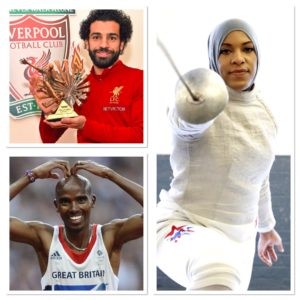In
my last blog, I wrote that I would explain my vision for Islamic Education for
children and how that can help build a confident and empowered community.
In the current climate, how do we bring up children who have sound knowledge of
Islamic principles and are proud of their faith instead of trying to hide it?
The answer lies in a higher standard of teaching and in reinforcing positive
role models.

Many years ago, teaching Islamic Education in Dubai, I remember picking up the standard textbooks and putting them straight back in the cupboard once I realised how boring they were! I realised how negative the impact would be for Muslim children unless I taught this subject the way I had taught other subjects – through interaction, role play, using technology, art and making cross curricular links. Luckily both my school and the school inspectors were very supportive and the results were overwhelmingly positive. Children learnt that their behaviour was the best way of giving a good impression of Muslims and Islam. For example, the concept of sadaqa or voluntary charity is manifested in many ways. It covers everything from donating old clothes and toys to participating in community litter picks. They can have a very beneficial impact on their local communities just by being practising Muslims. Even smiling at someone counts as charity!

The importance of good role models, especially for children, should not be minimised. In the first instance, parents are our first and lifelong role models. They are our first teachers. They teach us the kalima and introduce us to morals, values and good behaviour. Whilst teaching Islam is important to most Muslim parents, many lack the confidence to continue after a certain point. They look to the nearest mosque or madrasa school. Unfortunately the quality of what children learn is mediocre in many cases. In the British town in which he grew up, my husband was sent to his local mosque madrassa after school. He vividly recalls his resentment at being sent there, says he learnt nothing meaningful, and is determined to ensure a higher standard for our own children.
Whilst the rest of the world has moved on, teaching methodology in Islamic Education has remained stagnant for decades. Whereas children are enjoying interactive lessons and discussions in other subjects at school, the teaching and learning of Islamic Education can be singularly dry and unappealing.
In many instances, rote memorisation of rituals or unimaginative fill-in-the-blank worksheets completely fail to explain the beauty, compassion and common sense of Islamic teachings to a child. Planning and assessment is inconsistent. Citizenship, empathy for others, care for the environment are rarely included in the curriculum.
Great importance is rightly placed in memorising the Quran but the meaning and context is not always explained. Discussion is not encouraged. The result for young children is a confusing mesh of culture and religion which is hard to untangle. Of course, high quality institutions do exist both in Britain and abroad but these are the exceptions rather than the norm.
In
the public sphere, minorities have few, if any, role models that they can
relate to. Even fictional ones will do – the huge popularity of Black Panther
with its strong, smart characters who happen to be black – shows how hungry
people are for positive representation. When the character of Kamala Khan aka
Ms Marvel was created by G Willow Wilson, it was hailed as number 8 in the Top
10 Most Important Pop Culture Moments of the Last Decade.
On film and television, Muslims are often painted in clichéd negative
stereotypes. To be considered likeable to a general audience, Muslims
characters ‘fit in’ by drinking alcohol or clubbing. Is it really so hard to
show Muslims as normal people with a sense of humour who don’t need to
sacrifice their principles to integrate?

How
many Muslim children are taught about inspirational Muslims? We are now slowly
finding out what contributions Muslim philosophers and scientists made a
thousand years ago. However role models must be current and relevant to
children now, people like Mo Salah, Ibtihaj Muhammad or Sadiq Khan. Recently,
#inspiringmuslims has been trending following The Muslim News Awards ceremony
in London honouring contributions of Muslims to Britain.
Afzal Khan MP, tweeted:
“It’s been a good few days for Muslim citizens in sports:
– Mohamed Salah, Liverpool player won the PFA Player of the Year Award
– Mo Farah broke the British Record in the London Marathon
– Amir Khan knocked out his opponent in 40 seconds
#inspiringMuslims”
Many others were recognised for their work in science, media and in the
community. This acknowledgement is important. It shows people do make a
difference through their actions and inspire others to follow in their
footsteps or blaze a new trail.

Though it is heartening to see more creative high quality resources such as Islamic cartoons, videos and board games, I have spoken to many colleagues and parents over the years who feel the same as I do and are frustrated by the standards they see in many institutions offering Islamic Education. To address the issues that I have mentioned above, I decided to create ilmspired – an Islamic educational app and website for 5-11 year olds. This stage is crucial to introduce children to key concepts and build the foundations for a lifelong love of Islam.
What makes ilmspired different is that it will eventually have a comprehensive set of interactive games covering an entire primary curriculum online InshaAllah. Each game is linked to a learning objective and there is guidance on what a child should know by the end of each educational attainment level.
Games are short and varied – there are simple football games, memory match games, online board games and many more. Children will hopefully enjoy playing the games and earning reward points. Parents can consider it as an online resource for children to learn from the comfort of their own home, or to supplement their existing arrangements. Though children could power their way through the games in a few days, learning will not be optimal this way. Where applicable, games are linked to a separate multiple choice assessment section which will test their Islamic knowledge. A detailed parents’ guide gives tips on how to maximise your child’s learning as well as track their progress. In addition to the Games section, there are stories of the prophets and and a section on inspirational Muslims. This features famous Muslims, past and present from Prophet Muhammad (pbuh) and early companions, to social activists, historical figures, scientists and athletes, all in one place. Each biography is a short slide with a photo and bullet points to broaden children’s knowledge without having to read too much!
We have initially launched with 21 games, 25 biographies, 10 tests and 8 illustrated stories of the Prophets. InshaAllah, more will follow on a regular basis. Please search for ilmspired on the App Store or Google Play or look at the website. The Quran and its teachings are universal and timeless, but it’s time we addressed the way we teach Islamic Education and bring it into the 21st century.
Here’s hoping you will be ilmspired!


